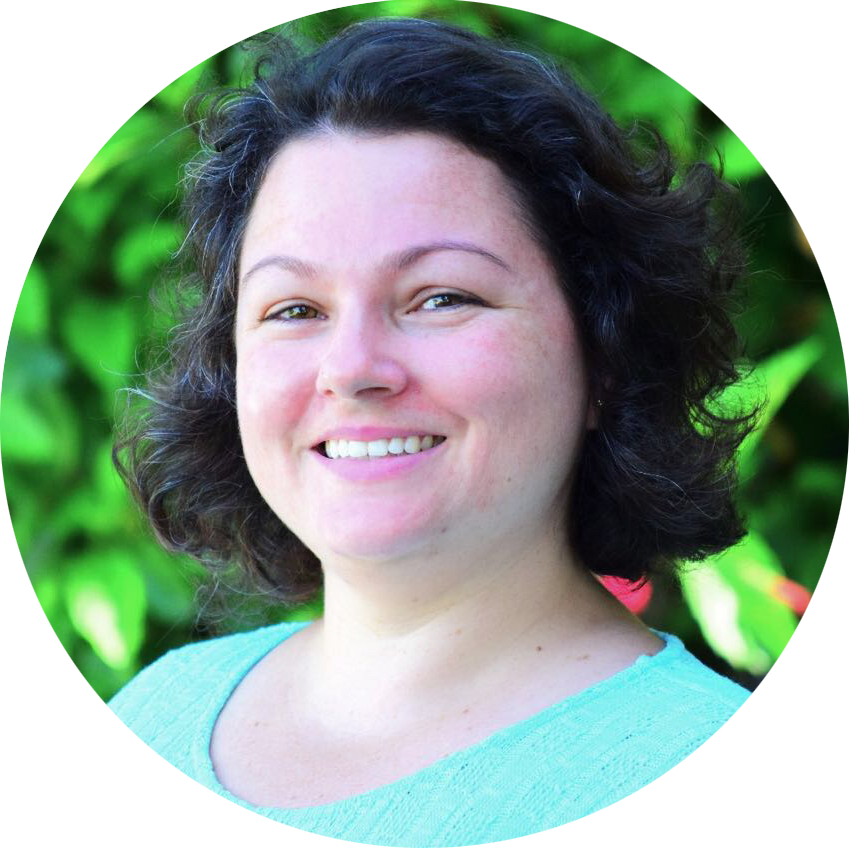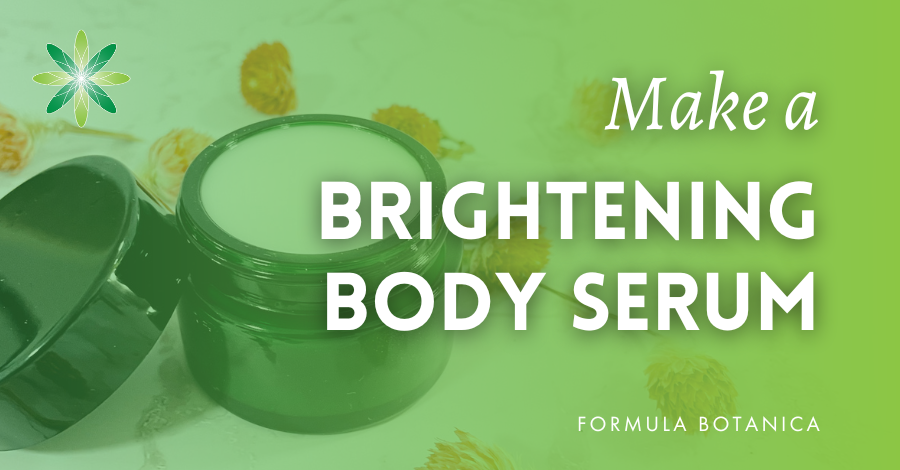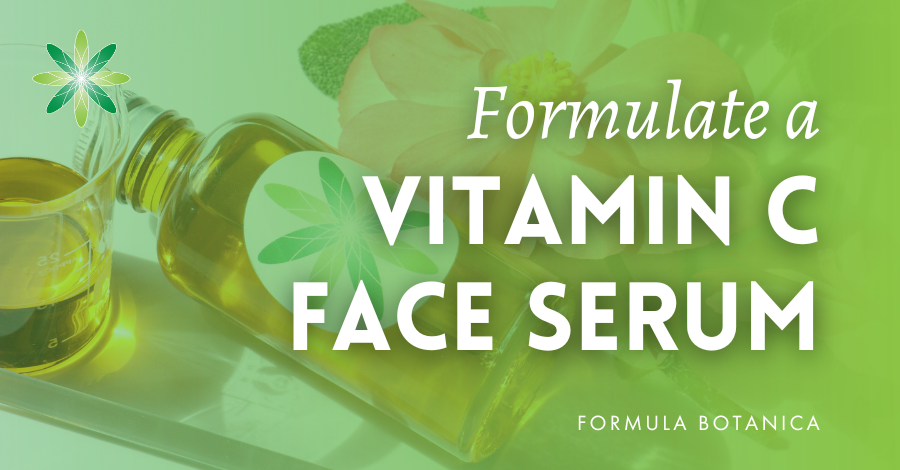Many Formula Botanica students study with us having enjoyed creating DIY beauty recipes at home but now wanting to grow their skills as cosmetic formulators. Formulating is exciting! When you first start to formulate there is the thrill of knowing there are potentially limitless combinations of natural ingredients to test out and different types of products to make. Then, there is the sensory and creative pleasure of experiencing beautiful natural botanical scents and discovering new and interesting product textures. At this point, you may realise that you have discovered a new hobby, or perhaps even see yourself in a new career as a cosmetic formulator.
Either way, as you progress on your journey as a formulator, there will be times when you feel uncertain about what ingredients to use and when, why or how to formulate with them. You can even feel overwhelmed by the amount of research and information available online.
We know this from experience, as we guide more than 7,000 cosmetic formulators from all around the world through their studies, helping them grow their skills as cosmetic formulators. Find out about just some of our graduates who changed career, progressing from beginners to competent cosmetic formulators and founders of their own natural skincare brands.
Formulating is a combination of science and art, where there is room for creativity and research and a combination of practical work and theoretical study. We cover this blended learning approach on our foundation Diploma in Organic Skincare Formulation. You might like to listen also to our podcast about why you don’t need to be a cosmetic chemist to formulate skincare to understand more about the various paths open to you in cosmetic science.
In this post, we focus on the core technical aspects of formulating that we cover in our Diploma in Organic Skincare Formulation and highlight the 5 key skills of a cosmetic formulator.
Thinking of a career in natural beauty? Find out the top 5 most important skills you need as a competent natural cosmetic formulator. #cosmeticscience #beautycareers #cosmeticformulation Share on X1. Understand the Science of the Skin
One of the first steps in building competent skills as a cosmetic formulator is to study the skin. Understanding the skin’s structure, physiology and needs is fundamental to developing sound formulations. Having a deep knowledge of the skin’s layers and its various cell types, along with its function and processes and understanding skin absorbency will help you design more efficient products.
For instance, learning how the skin renews itself and how the ageing process works and how it impacts the appearance of the skin are important factors in creating anti-ageing products which are designed to prevent or rectify skin damage. You will need to get to grips with factors like the skin’s barrier function, the role and use of antioxidants in anti-ageing products, the promotion of connective tissue production and so on.
Learning about the internal and external factors that impact our skin health and what we can to do to avoid or mitigate these factors, can help you formulate appropriate, effective products. You might, for example, formulate anti-pollution skincare designed to fight environmental pollution; one of the factors that contributes to the skin ageing process.
Learning about the structure and needs of the skin and its ideal pH, hydration and protection are fundamental to helping you formulate safe, effective products.
2. Learn how to design a cosmetic formula
This is a key skill that distinguishes a proficient cosmetic formulator from someone who follows DIY recipes found online. A cosmetic formulator has the know-how, learning and ability to design a formulation that is both stable and effective. A good cosmetic formulator should know what ingredients are necessary to create different types of formula such as emulsions, balms, gels and toners and understand what differentiates one product type from another.
By way of example, a skilled cosmetic formulator should know when it’s necessary to add a preservative, an emulsifier or a solubiliser. Knowing the basic structure of each type of formulation allows the cosmetic formulator to improve a formula’s composition and to customise it in accordance with a product brief. Tight, competent formulation design helps reduce waste and speeds development time.
3. Define the perfect formulating process
Learning cosmetic product design is just a first skill you’ll need as a cosmetic formulator. You also need to learn which formulating phase is the optimal time to add each ingredient. You should be aware of any incompatibilities among ingredients and about any special requirements they have such as needing to be added to the formula at or below a certain temperature or within a certain range of pH.
For instance, a good cosmetic formulator should know when it is necessary to add a preservative, a chelating agent or an emulsifier to a formula, and if they have any particular instructions to follow or if they require additives to improve their performance.
This may seem a daunting checklist of skills you’ll need as a cosmetic formulator, but if you choose to study with Formula Botanica, you can rest assured we hand-hold you through these more advanced formulation steps.
4. Have a passion for research
Way before jumping in to the fun of mixing ingredients, and even before starting the design of your formula and manufacturing process, you need to research the best ingredients for a given product type and the function you want it to have. Your research will help you find the best botanical extracts, the correct functional ingredients and the optimal way of adding them to the formula.
Researching ingredients is a big part of a cosmetic formulator’s day-to-day activities and you should make a habit of it. This is where you will discover new ingredients, learn the properties of your botanical ingredients and how to use them in the best way possible.
5. Love experimenting, failing and succeeding!
Experimenting helps you, the formulator, understand the impact an ingredient has on the stability or skin-feel of a formula. This constant striving for improvement and the best possible product performance, stability, look and feel differentiates the experienced cosmetic formulator from the hobbyist. The adage practice makes perfect applies here.
At Formula Botanica, we encourage our students to experiment as much as possible, but also to start out as simply as possible. By doing so, you can gain skills incrementally without feeling overwhelmed and also without wasting precious ingredients you’ve invested in. We recommend just taking one step at a time on your journey in cosmetic formulation.
Experimenting is fun and there’s so much room for creativity here. You can create multiple formulas with the exact same structure while using different emulsifiers, for example. In the same way, you can test different stabilisers, preservatives and botanical extracts. You can reproduce a formula removing one of the functional ingredients, or compare how different gums behave when alone or mixed in different ratios, and how they impact the skin feel or stability of an emulsion. You can even study how the presence of a certain extract can impact the preservation system of a product.
Just remember to always keep detailed, updated records. It is very likely that you will not remember all your previous steps if you don’t have everything documented.
Reading about previous experiments by fellow formulators is also a great way of learning more about specific processes or ingredients. Our students are constantly exchanging experiences in our Formula Botanica Online Classroom and taking advantage of the formulation training videos and ingredients’ posts our team produces.
We learn from our mistakes. Experimenting is a way of creating controlled and purposeful errors that will certainly help us to avoid bigger mistakes in the future. It also allows us to discover better processes and find better results.
Now that you know the key skills you need as a natural cosmetic formulator, we invite you to take our sample class on making a lip balm. The sample class is a good introduction to life as a cosmetic formulator as you’ll get to put your budding skills through their paces, customising a formula and researching your ingredients accessing our online directory for help.
If you want to learn more about how to take your cosmetic formulation skills to the next level, check out our Diploma in Organic Skincare Formulation. Have you pre-registered yet? Just sign up to stay informed about all our organic skincare formulation courses.
Leave us a comment

Eliziane is a Pharmacist and Biochemist, manages our Student Experience Team and provides technical advice for the ingredients research we undertake and provide. She loves bringing together the concepts of science, sustainability and organics. Read more about the Formula Botanica team.


























